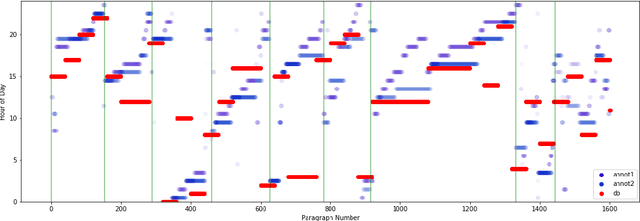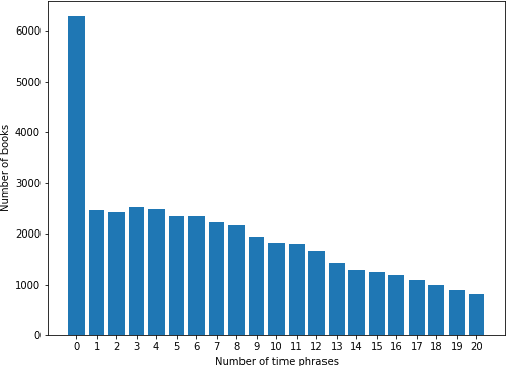What time is it? Temporal Analysis of Novels
Paper and Code
Nov 09, 2020



Recognizing the flow of time in a story is a crucial aspect of understanding it. Prior work related to time has primarily focused on identifying temporal expressions or relative sequencing of events, but here we propose computationally annotating each line of a book with wall clock times, even in the absence of explicit time-descriptive phrases. To do so, we construct a data set of hourly time phrases from 52,183 fictional books. We then construct a time-of-day classification model that achieves an average error of 2.27 hours. Furthermore, we show that by analyzing a book in whole using dynamic programming of breakpoints, we can roughly partition a book into segments that each correspond to a particular time-of-day. This approach improves upon baselines by over two hours. Finally, we apply our model to a corpus of literature categorized by different periods in history, to show interesting trends of hourly activity throughout the past. Among several observations we find that the fraction of events taking place past 10 P.M jumps past 1880 - coincident with the advent of the electric light bulb and city lights.
 Add to Chrome
Add to Chrome Add to Firefox
Add to Firefox Add to Edge
Add to Edge